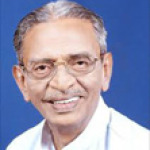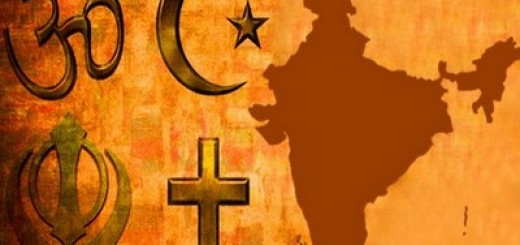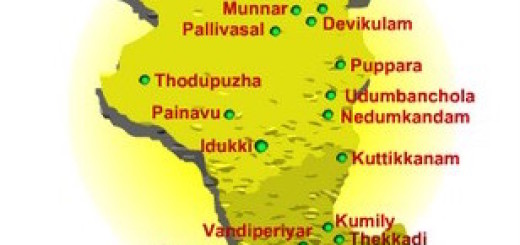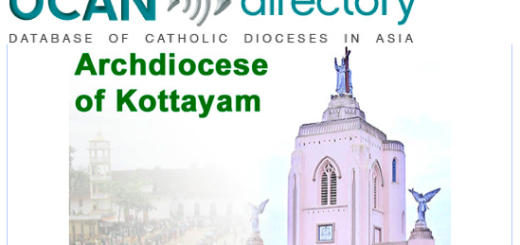Money power & cash for votes – Editorial in the Hindu,

Tamil Nadu’s direct cash transfers – May 19, 2016
(Note: This Hindu editorial is published mainly for two reasons: to show how money power and corruption rule roost both in Churches (Cuddapah kidnap) and politics. Rs.4.77 crore Election Commission (EC) seized from AIADMK ministers and 1.98 crore from DMK candidate and his son are shocking instances of the flow or flood of black money in which electoral votes are literally drowned. Euphemistically it is also called “cash-for-votes-phenomenon” or “Money Power” very respectfully. In the kidnapping of the Cuddapha bishop, it was first the offer of an Innova car by Fr. Raja Reddy of “Daddy Home” one of the three accused priests to his Bishop Gallela as a birthday gift. By accepting the gift, unfortunately the bishop apparently fell for the bait like the voters accepting money offered by corrupt candidates for votes. At least the bishop sent out the signal that he is ready to play balls as in electoral politics. That prompted Fr. Raja and party to ask the bishop the favours in return of appointing Fr Marreddy as Procurator and Fr. Mohan Reddy to the college in the next transfers, besides demanding Rupees Fifty Lakh or more which the bishop refused. This resulted in the subsequent kidnap and torture of the Bishop on April 25th, according to reports received. Here we see a perfect parallel of incidents of corruption and crime (think of the murder of a Rector in Bangalore), both in Catholic Church and Indian Politics. It is for readers to make more comparisons and draw useful lessons for every day living. Fortunately or unfortunately one of the corrupt and bribe giving parties — Amma in Tamilnadu and LDF in Kerala has won the present election. We can only hope that the less corrupt and criminal has won in both the states. “The only cause for cheer in this grim  scenario is that voters do not necessarily vote for the highest bidder” consoles the Hindu editorial. Even so the vicious plot of three Cuddapah priests has backfired as lesson for the rest of Catholic priests and bishops. james kottoor, editor)
scenario is that voters do not necessarily vote for the highest bidder” consoles the Hindu editorial. Even so the vicious plot of three Cuddapah priests has backfired as lesson for the rest of Catholic priests and bishops. james kottoor, editor)
The Election Commission may believe it has done enough by postponing voting in two Assembly constituencies in Tamil Nadu where there were allegations of rampant voter bribery and distribution of cash and gifts over the last month, and ordering an inquiry.
But given the situation on the ground, coupled with the EC’s own grim portrayal of the widespread electoral malpractice, deferring the election in Aravakurichi and Thanjavur by a week is a grossly inadequate response. For one, there is enough reason to believe that the cash-for-votes phenomenon has taken deep roots in all constituencies. Also, deferment means little in the long run if recovery of cash is not followed up with the implementation of strategies to stamp out this perversion. In Aravakurichi, the EC seized Rs.4.77 crore from a person linked to the AIADMK and its Ministers. It seized Rs.1.98 crore from the DMK candidate and his son. It found evidence that ambulances were used for cash runs to distribution points. Details of ward-wise distribution, possibly of up to Rs.6 crore, have been found in Thanjavur. A well-oiled cash distribution system was undoubtedly in place. Some cases have been registered, but the candidates remain untouched. Hence the widespread scepticism about the EC’s claim that with the seven-day postponement the “vitiating effect” of the money and gifts distributed would “lose its intensity”.
The term “money power” is used to describe the financial clout of some candidates backed by superior resources. In India’s electoral history, there have been any number of allegations of attempts to influence voters. However, Tamil Nadu is acquiring a reputation for its well-oiled cash economy of electioneering, with every vote seen to be on auction. This dynamic, in part, explains why Assembly elections in the State are becoming so lacklustre, with the essential democratic outreach through manifestos and programmes replaced by competing rosters of freebies and, behind the scenes, the promise of payment for votes.
By-elections held a decade ago heralded the beginning of large-scale bribing of voters, and there are suggestions that few, if any, constituencies are wholly free of ‘cash’ enticements. Indeed, candidates tremble at the prospect of meeting voters ‘empty-handed’. The EC has used its enormous powers effectively to end most malpractices across the country. It has worked successfully to increase turnouts and opened up access to polling booths to all sections. However, it has clearly failed to contain money power, especially in Tamil Nadu. That is only to be expected.
The EC cannot wage this battle alone — efforts to curb the flow of cash in election campaigns need to be embedded in a wider cleaning up of the account books of political parties. Campaign finance remains anachronistically opaque, and the distortions include not just “money power” at election time, but also corruption in administration and in, say, the use of local area development funds. The only cause for cheer in this grim scenario is that voters do not necessarily vote for the highest bidder.
















